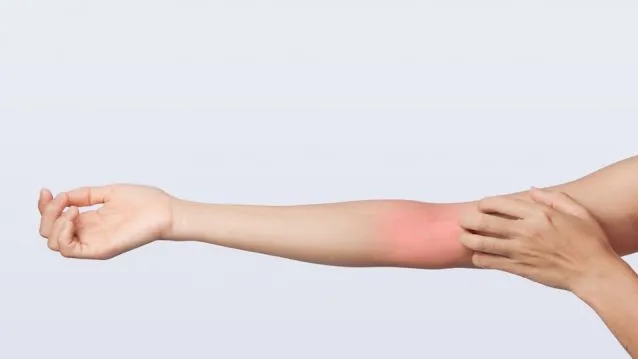Eczema comes from the Greek word that means effervesce, bubble or boil over. Characterized by red, itchy and inflamed skin which may also be rough and leathery or oozing and crusting, eczema, this painful condition impacts over 30 million people in America.
What causes eczema?
Although it is not known exactly what causes eczema, researchers feel it may be a combination of genes and some sort of trigger. It seems that people who suffer from eczema may have an hyper-reactive immune system that becomes inflamed when influenced by a trigger substance either outside or inside the body. The inflammation causes the skin to become red, itchy and painful.
It has also been found that people with eczema have a gene mutation that produces the protein Filaggrin. This protein assists the body to keep the protective barrier on top of the skin strong and healthy. If we lack filaggrin, moisture escapes, causing dryness and susceptibility to viruses and bacteria.
Eczema triggers
While it may take you some time to identify the exact triggers that cause your eczema to unleash its nasty head, it is good to keep track of symptoms. Here are some of the common triggers, but keep in mind that everyone presents differently.
- Dry skin – Skin that becomes too dry, tight and brittle invites eczema.
- Irritants – There are a number of different irritants both inside and outside of the home that can cause eczema to flare up:
-
- Cigarette smoke
- Soaps and cleaners
- Fragrances
- Metals
- Fabrics like wool and polyester
- Soap
- Cleaners
- Antibacterial ointment
- Natural juices from fruit, vegetables, and meat
Stress
For some people, stress can be a big trigger that causes their skin to break out. It might be before you have to take a test or do something that makes your nervous like speaking in front of a large group of people. Additional stressors may be relational or situational.
Exercise and Weather
If you sweat when you exercise, it could bring on an eczema flare up which is worse if you exercise in the heat, causing sweat. When the air is too humid or too dry, it can also bring on an eczema “attack.”
Hormones
Fluctuating hormones, especially in premenopausal women can also cause an inflammatory response leading to an eczema flare-up.
Allergens
People who struggle with allergies often have issues with eczema. Allergens can include things like pollen, dust mites, dander from cats and dogs as well as dandruff and mold.
Combatting eczema
Besides knowing and reducing your triggers, there are a few other ways that you can manage eczema and promote healing.
- Eat anti-inflammatory foods – such as berries, mushrooms, grapes, broccoli etc.
- Eliminate gluten – gluten can be a significant contributor to inflammation
- Eliminate sugar – another inflammatory “non-food.”
- Eliminate processed dairy – choose raw when possible.
- Reduce bathing frequency – overbathing makes the skin dry out which can lead to a flare-up.
- Use organic or homemade skin care products – stick to fragrance-free skin care products only that aren’t loaded with harsh fragrances and dyes.
- Get some time outside – direct sunlight on the skin increases vitamin D which improves immunity and reduces the occurrence of eczema.
Homemade Eczema Cream
This homemade eczema cream brings much relief to irritated and sore skin. The ingredients include soothing essential oils, honey, a proven winner for healing and coconut oil for antibacterial protection.
What’s in it
- ½ cup raw shea butter
- ½ cup of coconut oil
- 1 tablespoon raw local honey
- 30 drops of lavender essential oil
- 8 drops of tea tree essential oil
- 5 drops of geranium essential oil
How to make it
- Melt shea butter and coconut oil using a double boiler.
- Add the honey and stir.
- Blend the honey with the melted shea butter and coconut oil.
- Add the lavender and tea tree oils and stir.
- Cool the mixture – it will start to thicken but still be soft.
- Put it in the refrigerator for a few minutes but don’t over chill.
- Use a hand- mixer to whip the ingredients until frothy. Continue mixing until it becomes lotion-like.
- Spoon into a clean glass jar.
- Store at room temperature.
Use liberally on clean and dry skin.
-The Alternative Daily

